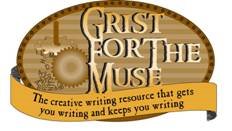The War of Art: Break Through the Blocks and Win Your Inner Creative Battles – Steven Pressfield
This book is one of the best books I have EVER read on the nature of struggle in the creative process. In short, this book will provide me material to write numerous blog entries both here and in my other blog, The 15-Minute Writer for the next several weeks, if not months.
This book is one of the best books I have EVER read on the nature of struggle in the creative process. In short, this book will provide me material to write numerous blog entries both here and in my other blog, The 15-Minute Writer for the next several weeks, if not months.
First of all, I love, love, LOVE the title. The clever play on words caught my attention… I mean come on The Art of War… The War of Art? Great stuff. The book is arranged into three sections: Resistance, Battling Resistance and Beyond Resistance. Within these sections are brief one to three-page essays about the aspects of the Resistance that dwells within every writer and most of the rest of the world. Short, direct writing illustrates each point.
This book does something that has never been done before… at least in my mind it hasn’t, which is that it defines the true essence of the Inner Critic. If you are not familiar with this name you've experienced it: That nagging voice in the crevices of your mind who whispers doubts in your ear when you sit down to confront the blank page. It says things such as: “This is stupid. Why are you wasting your time? Who do you think you are? Why would anyone want to read this sh!@.” And on and on. Natalie Goldberg calls this “Monkey Mind.” Others call it writer’s block. Still others call it “untapped potential.” Regardless of what name you give it, it is the essence of Resistance.
Pressfield pulls no punches when writing about Resistance. It is the enemy. And you are at WAR. (Hence the substance behind the clever title for the book.)
Pressfield pulls no punches when writing about Resistance. It is the enemy. And you are at WAR. (Hence the substance behind the clever title for the book.)
“Resistance will unfailingly point to true North—meaning that calling or action it most wants to stop us from doing… Rule of thumb: The more important a call or action is to out soul’s evolution, the more Resistance we will feel toward pursuing it.” p12
I've highlighted quotes on almost every page of this book. All excellent insights and all worthy of exploration. This book is required reading for anyone who wants to write, paint, start a business, lose weight, or commit yourself to a life of service to others. Anyone who has:
"experienced a vision of the person you might become, the work that you could accomplish, the realized being you were meant to be."
I think that this covers everyone on the planet. The message of this book is universal: Resistance is a cunning and ruthless enemy who does not give up ground easily.
Case and point: I read this book for the first time almost a YEAR ago. I loved it so much that I felt that I needed to read it again, so I started rereading it on Monday. I even had a first draft of this post written on 4/27/2010, but failed to finish it up until now. Relaunching the blog was in my mind for the last 2 years, but again and again I discovered new excuses why I couldn't begin: Kristen's grad school work load is busy and I need to help out more with the laundry and cooking; I need to read up on blog design since I can't format the text correctly; Overtime spent on urgent projects at work eat into my free time; There is so much in this book I don't even know where to begin (so it is easier not to start at all).
Resistance is real, and it kills the creative spirit or any urge to reach for something that makes you better. The War of Art helps you "know thy enemy" and how you must fight it. Don't allow Resistance prevent you from reading this book. Get a copy today.
Stay tuned for future Musings on this book. There is a lot to explore and discuss here.
